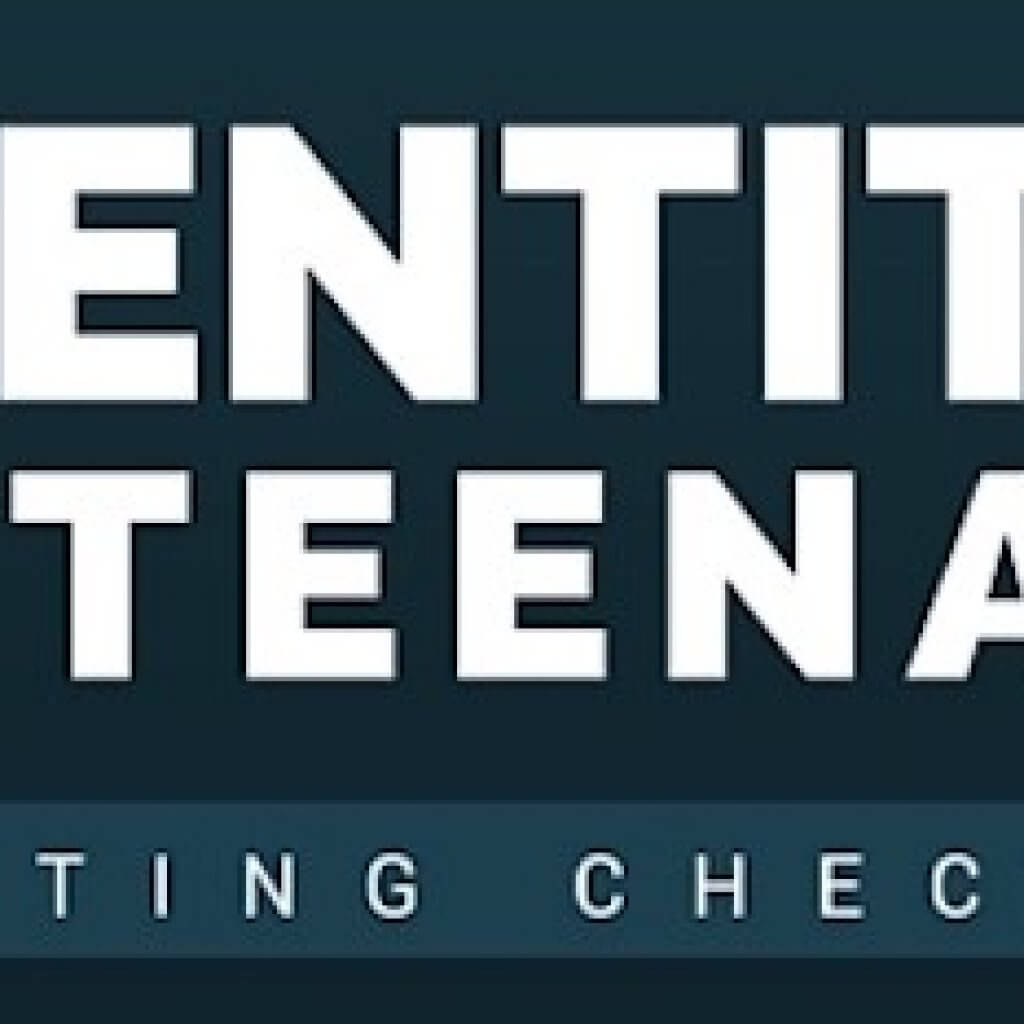The sarcasm, the cutting remark, the dismissive tone, the eye roll, the not to subtle put down, or just outright rudeness; all are common experiences for parents of teenagers. Rudeness and “attitude” seem to be synonymous with teenagers. Dealing with a disrespectful attitude and constant rudeness is one of the most common issues I encounter when talking to parents about their teenagers.
What is surprising is that such a common problem remains a very misunderstood one by so many people. While teenage rudeness can be hurtful and tiring to live with, it is actually one of the easier issues of adolescence to understand and manage. Ironically, and unfortunately, it is also one of the most mismanaged behavioural issues by parents and professionals who deal with teenagers.
This post will provide a basic understanding of why rudeness and disrespect are such common behaviours during the teenage years, and then some simple strategies to deal with the problem and minimise the impact on your relationship with your teenagers.
Table of Contents
ToggleWhy Are Teenagers Rude & Disrespectful?
Emotional Autonomy
One of the key tasks for teenagers as they grow up is to discover who they are apart from their parents. The experts describe this process of adolescence as “Autonomy.” There are a few key stages of autonomy development. The one that most impacts teenage rudeness and back-chatting is called “emotional autonomy”.
Teenagers are preparing to define themselves as an individual apart from their family. This includes developing and owning their own set of values and limits. Teens need to distinguish themselves clearly from their parents. To do this they need to emotionally separate from their parents – hence the phrase “emotional autonomy”
Teenagers initiate this separation by challenging rules and values as a way of establishing their individuality. Adolescents cannot do this in a vacuum, but rather through conflict and confrontation.
By being rude or making fun of parents, a teenager is expressing a sense of autonomy and is saying that he or she doesn’t need their parents to define or control who they are.
One of the key changes that occurs during this process is the teenager loses the childhood perspective of their parent as being an invincible and infallible figure who is in control. They begin to see a parent as a person who is more than just a parental figure, they also see you as a person who is flawed and capable of making mistakes. This is another driver that contributes to the disrespectful attitude and rude commentary.
So in short, a lot of teenage sassy backchat and rude dismissiveness is actually part of an important process for your teenager to discover who they are as an adult.
It is not a character flaw, but a developmental stage that all teenagers need to go through.
Limited Relational Ability
Another major contributing factor to a teenager’s annoying capacity for rudeness and disrespect is their lack of awareness of how others are feeling or reacting to them.
As the teenage brain goes through a major reorganisation, one of the outcomes is the teenager’s ability to discern or interpret the mood or feelings of others is seriously impeded.
So it is not always that your teen is being deliberately insensitive or rude, but they are completely unaware of how what they are doing is impacting those around them. Similarly don’t expect your teenager to necessarily pick up on the cues that you are having a bad day or are in a bad mood, because chances are they won’t. Hence they are unlikely to ease off the on mouthy smart-alecky outbursts just because you are having a bad day, they probably won’t even notice a lot of the time.
Disguised Vulnerability
Adolescence also results in teenagers feeling like the whole world is obsessed with their every move. Your average teenager spends an extraordinary amount of energy every day trying to manage the perceptions of everybody else, especially peers and family.
So despite their external bravado and cheeky attitude, teens commonly feel very vulnerable and exposed to the world around them.
One of the means teens have of dealing with this sense of vulnerability is to try and keep the world at bay by using rudeness and a brazen attitude as a defense. It is a great example of the best form of defense being offence.
When your teenager gives you a look of disdain or mouths off at you in an insolent tone, it is likely to be a display of vulnerability rather than feeling powerful or superior. If they can put the attention back on you and your possible faults it means that the source of their own insecurities are less likely to be exposed or scrutinised.
So don’t make the mistake of interpreting your teenager’s rudeness as being a sign of them feeling superior, rather hear it as someone who’s feeling exposed and is paddling really fast under water while being desperate to look cool and in control on the surface.
Relationship Changes
Along with the profound changes that occur for teenagers during adolescence, parents also experience a significant change during their teen’s adolescence. It is how these changes are managed that contribute to the incidence and severity of teenage rudeness.
As kids grow parents become used to being the most significant person in their child’s life. This is only natural, and is a necessary part of parent child attachment and nurture.
However when kids hit adolescence and start to see their parents differently, many parents feel a sense of loss and struggle to let the relationship evolve.
The normal adolescent processes of seeking more autonomy, relying more on peers, and learning to see their parents as “people” rather than an idolised parent figure, all result in teenagers no longer looking to their parents as a constant source of truth, comfort and guidance. Subsequently parents can feel more disconnected from their teenager and become anxious about their role as a parent.
A common mistake many parents make when this occurs is to try and keep parenting the way they were during their teen’s childhood, or even worse, they over correct and becoming increasingly controlling and invasive in their parenting style.
When parents try to maintain their sense of being a parent by hovering and trying to manage all aspects of their teenager’s life as if the teenager is still a small child, they fuel their teenager’s resentment and need to detach from them as parents.
Trying to maintain a meaningful connection with your teen, or validate your identity as a parent by trying to constantly intervene in, or micromanage, your teenager’s life will only push your teenager further away. If your teen feels like you are constantly interfering or being overly controlling they will put up a wall to resist. The easiest wall to put up is one of rudeness and sassy attitude.
This then becomes a cycle of parental control to manage the ever increasing rudeness, which only leads to more rudeness and hence parents over-parenting even more.
Parents Don’t Expect Respect
The other reason teenagers are rude or disrespectful is when parents have too lower an expectation. If your teenager has grown up not having clearly defined limits, or has never learnt that being rude is inappropriate and not acceptable, then of course they will continue to be rude and disrespectful because they don’t know any better.
If a teenager doesn’t see their parent having self-respect they won’t respect that parent either. If as a parent you have allowed your children to ignore or disregard what you say with little or no consequence, and your kids have seen you allow other people to treat you in a similar manner, it is very hard for them to respect you and hence act respectfully.
At the other end of the scale, if you have not treated your teen with respect by being overly harsh or punitive, constantly putting them down, or ignoring them and speaking over them, your teen will naturally resent you and find it very hard to respect you. When parents are overtly cruel or abusive a teen may act respectfully out of fear, but deep down they will feel a lot of anger and disdain rather than respect.
What To Do About Teenage Rudeness
Don’t Make It Personal
If you do nothing else about your teenager’s rudeness, doing this one thing alone will produce a noticeable improvement in your relationship with your teenager.
Do not take the rude comments, eye-rolling, sarcastic remarks personally. Granted it is easier said than done, but you have to be able to rise above it. You are an adult, you need to be able to divorce an action from its motivation.
Your teenager’s rudeness is not a denial of your status in their life. In most cases your teenager is rude to you because they see you as an authority figure. Their rudeness is an affirmation of just how important you are.
Even though it can be hard, when your teenager is rude or gives you a mouthful of attitude, you need to remind yourself that they are motivated by a need to be more autonomous. Their rudeness is a statement about how they see themselves more than it is about how they see you.
I am not saying you should let your teen get away with being rude (read on below), but it is important you react constructively, not out of a sense of personal hurt.
Choose Your Battles Wisely
Most parent- teenager conflicts occur over trivial household matters. Parents reacting to their teenager’s perceived rudeness makes up a big percentage of those conflicts.
There are many issues during adolescence that will and should consume a parent’s time and energy. Dealing with backchat and rudeness is not one of those issues.
If you are responding to your teenager’s disrespect or rudeness in way that is resulting in arguments, yelling, threats, or punishment then there is a good chance you making things worse not better.
It is completely understandable why parents react in this way, and teenagers are very good at knowing just which buttons push to get a reaction. But if your teenagers rudeness is a constant source of conflict then you are not operating in the most helpful way as a parent for them or for you.
Rudeness and back chatting should be dealt with but not allowed to escalate into anything more than a rebuke or a look from you. If you elevate it to anything more than a small incident you risk focusing on the wrong thing. Sometimes teenagers will use rudeness and disrespect to avoid dealing with another issue. If you get distracted by their attitude you will end up not focusing on their cooperation and compliance due to arguing about their attitude.
While teenager’s whining and muttering when asked to do something is annoying, making sure they comply and cooperate is far more important than getting them to do it with a happy positive attitude. Some things you just need to let go. Muttering, eye-rolling, and the occasional storming out of the room, are rarely worth going to war over – unless they are attached to bigger issues of defiance and disrespect. Much better your teen comply to your instruction with a negative attitude than openly defy or ignore you.
Don’t Let it Slide
While it is important you don’t over react to teenage rudeness, it is equally as important that you don’t ignore it or under react.
Teenagers need not only to learn appropriate ways of expressing a desire for autonomy and independence, but they also need to learn that rudeness and disrespect are not acceptable.
So how do you react without overreacting?
- Stay calm. Speak calmly, look passive, be deliberate. (It doesn’t mater how angry and not calm you feel inside, what matters is how you come across to your teen).
- Stay Focused. If the rudeness is eye-rolling, heavy sighs, or muttering while you are requesting cooperation then just keep being very clear in stating what you expect. Don’t acknowledge their cues or get distracted by their attitude. Not allowing their attempts at showing displeasure to ruffle you is the best way to take away the power battle and will teach your teen it is not an effective means of expressing autonomy.
- Keep it Short & Sharp. If your teen speaks to you rudely, don’t lecture or make a big deal, simply offer a short sharp rebuke. Some examples “I don’t appreciate being spoken to like that.” “Talking like that is not how you get a better outcome.” “I don’t respond well to that type of attitude / sarcasm / tone. If you want to discuss properly I will be in the other room.”
- End the conversation. Teach your teen that rudeness doesn’t work by ending the conversation, especially if they are being personally insulting towards you or your partner. “That type of talk is not acceptable. Come and see me when you want to speak properly” then walk away.
- Warn In Advance. If your teen is more likely to display rudeness in certain circumstances, warn them ahead of time that there will be consequences if they are rude. For instance if they are inclined to show off in front of their peers by being rude to you, tell them before their friends come over that any showing off by being rude will have significant consequences, including asking the friends to leave right away.
NOTE: This advice works for common acts of rudeness or petulance. When your teen is being openly defiant or aggressive you need to respond differently. Likewise if your teen goes beyond just being rude or disrespectful and violates your house rules by being verbally threatening or inappropriate, you need to enforce the necessary consequences.
Check Your Parenting
Increasing rudeness and back chatting from your teen might be a sign you need to adjust how you are parenting. As mentioned earlier parents often struggle to step back and give their kids more autonomy as they become teenagers. Teenage rudeness is commonly a reaction to parental micro management and constant hovering.
If your teenager’s attitude is deteriorating ask yourself
“Could I be contributing to this as a parent?”
“Is it possible I am trying to over-manage my teenager?
“Are there areas in my teenager’s life where it might be time for you to step back and give them more independence?
If the answer to any of the above questions contains “yes”, then take some corrective actions yourself and see how your teen responds.
Stay Connected
While adolescence is about teenagers achieving a sense of autonomy from parents, teens also really need to maintain a sense connection and attachment with their parents and family. This attachment changes from the sense of attachment smaller kids have, but a strong sense of belonging and being valued in the family unit is incredibly important for a teenager’s development.
By reducing unnecessary conflict you make it easier to maintain meaningful connection with your teenage kids through times of significant change. So as well as not allowing their attitude to dominate the relationship, make sure you are still trying to initiate quality time and reach out to connect with your teen.
Acknowledge that how you relate with your teen needs to change as they grow, and consider how you can adapt your relational style to accommodate the changes. Don’t allow yourself to be put off by their dismissive attitude. Teens still need their parents; they just need them to connect in a different way.
Remember your teenager is likely to have a general sense of feeling vulnerable, insecure and uncertain about life. Choose to see their rudeness as a sign of this and respond accordingly.
The more your teenager feels like you care, the less likely they will be to feel like they need to push you away by being rude and back chatting.
So if you are a parent enduring a teenager full of attitude and rude remarks, hopefully you can better appreciate what is happening and have some ideas about how to address the behaviour effectively going forward. If you have other thoughts or ideas please feel free share in the comments below.






